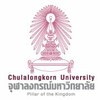Course summaries
To give you a better idea of the classes being taught at the University of Cape Town, we are providing three examples of class summaries.
Art and the Sociology of Pop Culture
This course combines the sociology of art and culture inaugurated by the classics of Sociology, the Frankfurt School and refined by Pierre Bourdieu. The traditions are read through a variety of Africanist and Post-Colonial lenses to understand the relationship between social movements in society and forms of artistic signification. It will trace how local and international aesthetic acuity is socially constructed and will provide an opportunity for serious inter-disciplinary work across continents. The course introduces students to the ways art and popular culture have been used and misused in nationalist, socialist and social movement discourses and practices in Europe, Asia, Latin America and Africa; to how modernity in all contexts involved international and local entanglements and visions.
Contemporary Social Theory
The course examines the corpus of sociological theory and the role of African intellectuals in the making of the modern world. In the simplest and general terms, theories help us clear up conceptual confusion and lay down standards of intelligibility in the construction of knowledge. The course interrogates a number of recent theoretical interventions that attempt to think old and new social questions in Africa and beyond. The course is an invitation to think of the immediate (geographically and socially) as a way of reflecting on experiences, social structures and “elsewheres” that may not be immediately available to our life worlds.
GPNs, Development and Decent Work
This course will explore mainstream and alternative ideas and theories that have shaped Global Production Networks (GPNs) discourse. In the context of GPNs, and from a Global South perspective, we will grapple with a number of unresolved debates concerning decent work and development. Global shift in production and consumption trends, 'new' employment regimes, trade union strategies and collective resistance will be discussed.





